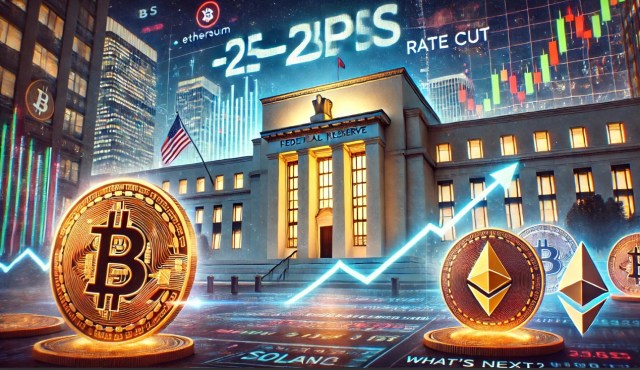Microsoft (MSFT) Stock: Tech Giant Rejoins $4 Trillion Valuation Club After OpenAI Deal
TLDR
- Microsoft’s market valuation crossed $4 trillion on Tuesday, closing at $4.04 trillion after shares rose 2% to $542.07
- The company secured a 27% stake valued at $135 billion in OpenAI’s newly restructured for-profit corporation
- Microsoft received exclusive intellectual property and API rights to OpenAI through 2032, extending even beyond AGI development
- Wall Street analysts raised price targets with the average now at $631.12, representing 16% upside potential
- OpenAI agreed to purchase $250 billion worth of Microsoft’s Azure cloud services in increments
Microsoft’s shares climbed back above the $4 trillion valuation mark on Tuesday. The stock closed up 2% at $542.07, giving the tech company a total market value of $4.04 trillion.
Microsoft Corporation, MSFT
The jump came after OpenAI announced it would restructure into a public benefit corporation. Delaware and California attorneys general approved the conversion plan.
Microsoft previously crossed the $4 trillion threshold in July. That made it the second company after Nvidia to reach the milestone.
Apple’s shares also briefly topped $4 trillion earlier Tuesday. The iPhone maker closed slightly higher at $269, just below the mark at $3.99 trillion.
The new agreement gives Microsoft a 27% stake in OpenAI’s for-profit entity. That stake carries a valuation of $135 billion.
OpenAI will purchase Microsoft’s Azure cloud services totaling $250 billion over time. The deal also grants Microsoft exclusive intellectual property and API rights through 2032.
Those exclusive rights extend beyond the development of artificial general intelligence. That’s a key protection for Microsoft’s long-term interests.
Wall Street Raises Targets
Goldman Sachs analyst Kash Rangan reaffirmed his $630 price target for the stock. He sees the deal creating clear ownership of technology between both companies.
Morgan Stanley called the agreement a solution to Microsoft’s “number one” obstacle. The firm praised the revenue share terms and API exclusivity.
Evercore ISI echoed similar sentiments about removing investor concerns. Multiple analysts upgraded their outlooks following the announcement.
William Blair analyst Jason Ader noted some potential challenges. Increased cloud market competition and shifts from on-premises software could create headwinds.
But Ader believes the benefits outweigh these concerns. The deal strengthens Microsoft’s Copilot initiative and opens new monetization paths through Azure and OpenAI.
Strong Buy Rating
Microsoft currently holds a Strong Buy consensus rating on Wall Street. That’s based on 33 Buy recommendations from analysts over the past three months.
The average price target sits at $631.12. That represents more than 16% upside from current levels.
Microsoft is set to report first quarter fiscal 2026 earnings after Wednesday’s market close. Options traders are preparing for higher than usual post-earnings volatility.
The $250 billion Azure contract helps Microsoft compete with OpenAI’s $300 billion cloud deal with Oracle. That was a concern for some investors before the restructuring.
The new structure removes the capped-profit model that limited OpenAI’s fundraising ability. The public benefit corporation format allows OpenAI to pursue both profits and public benefits.
The post Microsoft (MSFT) Stock: Tech Giant Rejoins $4 Trillion Valuation Club After OpenAI Deal appeared first on CoinCentral.
You May Also Like

Franklin Templeton updates XRP ETF filing for imminent launch

Fed Lowers Rates By 25bps: How Bitcoin And Crypto Prices Responded And What’s Next

Canada’s budget promises laws to regulate stablecoins, following US
Canada’s government unveiled a plan to regulate stablecoins, requiring fiat-backed issuers to maintain sufficient reserves and adopt robust risk management measures. Canada is set to introduce legislation regulating fiat-backed stablecoins under its federal budget for 2025, following the footsteps of the US, which passed landmark stablecoin laws in July.Stablecoin issuers will be required to hold sufficient reserves, establish redemption policies and implement various risk management frameworks, including measures to protect personal and financial data, according to the government’s 2025 budget released on Tuesday.The Bank of Canada would allocate $10 million over two years, starting in the 2026-2027 fiscal year, to ensure everything runs smoothly, followed by an estimated $5 million in annual costs that will be offset from stablecoin issuers regulated under the Retail Payment Activities Act.Read more